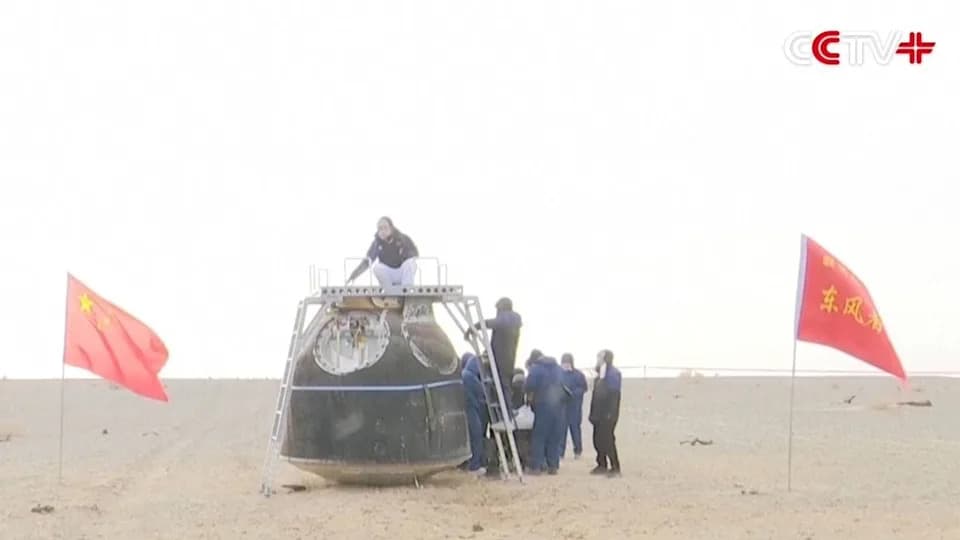China has postponed the Nov. 5 return of Shenzhou‑20 after suspected space debris apparently struck the crew's reentry capsule. Commander Chen Dong and astronauts Chen Zhongrui and Wang Jie will remain aboard the Tiangong station while engineers perform a detailed impact analysis. Shenzhou‑20 launched in April for a planned six‑month visit; its replacement, Shenzhou‑21, launched in late October. CMSA says crew safety is the priority and will announce a new return date after the assessment.
Suspected Space Debris Forces Delay of Shenzhou‑20 Crew's Return to Earth

Nov. 5 — Shenzhou‑20 Return Postponed After Suspected Debris Strike
The China Manned Space Agency (CMSA) announced Wednesday that the planned Nov. 5 return of the Shenzhou‑20 crew has been postponed after suspected space debris apparently struck their return capsule while the crew prepared to depart the Tiangong space station.
"To ensure the health and safety of the astronauts and the successful completion of the mission, it has been decided that the originally planned return of Shenzhou‑20 on Nov. 5 will be postponed," the agency said.
Commander Chen Dong and crew members Chen Zhongrui and Wang Jie will remain aboard Tiangong while engineers conduct a detailed impact assessment of the Shenzhou‑20 reentry vehicle. CMSA said the decision prioritizes crew safety and mission integrity.
The Shenzhou‑20 mission launched in April from the Jiuquan Satellite Launch Center in the Gobi Desert for a planned six‑month rotation and reached Tiangong after roughly a six‑hour flight. Its replacement, Shenzhou‑21, launched in late October to begin its own six‑month research mission on the station.
Agency officials said crew members from both missions will stay aboard Tiangong until the analysis is complete and any necessary mitigation steps are taken. Engineers will evaluate the extent of the damage and determine whether the reentry vehicle remains safe for atmospheric return or requires additional procedures.
Space debris — fragments from defunct satellites, spent rocket stages and other remnants of past missions — is an increasing hazard in low Earth orbit, posing risks to spacecraft and crewed missions. China’s human spaceflight program has completed about 37 missions to date, six of which were crewed by Chinese astronauts, and the country has set a national goal to land a person on the Moon by 2030.
What happens next: CMSA will release updates after engineers finish the impact analysis and a new return date is confirmed. Both crews are reported to be healthy and continuing planned station activities.
Help us improve.























